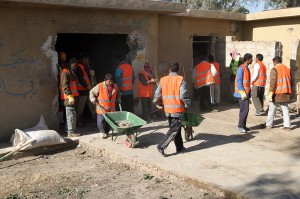
 New York Times columnist Nicolas Kristof recently highlighted the ongoing debate over the balance of funding the United States is spending on the war in Afghanistan. While military programs remain the overwhelming proportion of U.S. funding, Kristof observed that “education can actually transform a nation.”
New York Times columnist Nicolas Kristof recently highlighted the ongoing debate over the balance of funding the United States is spending on the war in Afghanistan. While military programs remain the overwhelming proportion of U.S. funding, Kristof observed that “education can actually transform a nation.”
Funding for twenty schools in Afghanistan, Kristof noted, would cost the same as sending a single soldier to serve there for one year, and these schools could provide a valuable alternative to extremists’ teachings and prepare locals to start their own successful businesses and develop the country on their own. Kristof praised Secretary of Defense Robert Gates, who has been a major proponent of increasing the role of development in U.S. foreign policy, noting that there are more people in the military’s various marching bands than there are diplomats in the State Department.
Kristof pointed to the work of USGLC coalition member CARE as the good example of education programs that have had an impact on the ground: “CARE, a humanitarian organization, operates 300 schools in Afghanistan, and not one has been burned by the Taliban.” He concluded that, ensuring that the United States retains the world’s most formidable military force is critical, but without the foreign policy pillars of diplomacy and development, America will be ill-equipped to face the current challenges of the world we live in.